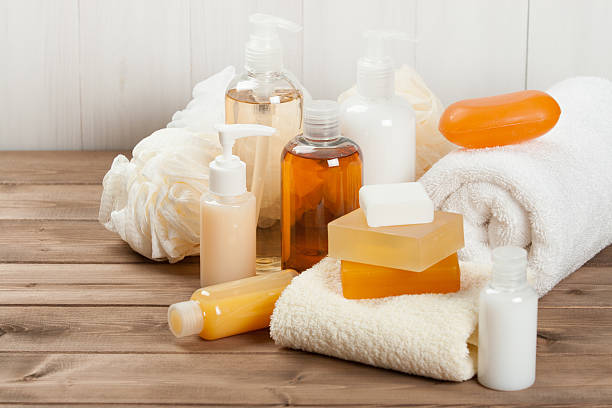
What Shampoo Should I Use?
With so many options vying for your attention, choosing the right shampoo can feel like navigating a maze. Whether you’re drawn to the eco-friendly charm of bar shampoos, the wallet-friendly appeal of drugstore varieties, or the benefits of salon-quality formulas, each type has its strengths and considerations. In this guide, we’ll explore the ins and outs of these popular choices, helping you find the perfect match for your hair care needs.
Bar Shampoo
Bar shampoos offer several advantages, including eco-friendly packaging that significantly reduces plastic waste and environmental impact. Their compact and solid form makes them ideal for travel, as they avoid the issues associated with liquid restrictions and potential spillage. Additionally, a single bar can outlast several bottles of liquid shampoo, providing extended use and reducing the frequency of repurchasing. Many bar shampoos are formulated with natural and organic ingredients, which appeals to those who seek products free from synthetic chemicals and prefer cruelty-free and sustainable options. Although bar shampoos may have a higher upfront cost, their longevity and reduced packaging needs often result in long-term cost savings.
However, users transitioning to bar shampoos might experience an adjustment period where their hair feels waxy or oily as it adapts to the new product. Proper storage is also essential to prevent the bar from melting or becoming mushy, which can affect its effectiveness and lifespan. Furthermore, the market for bar shampoos is less diverse compared to liquid options, making it harder to find specific formulas for specialized needs. Mastering the application technique for even distribution may require some practice, which can be a challenge for new users.
Drugstore Shampoo
Drugstore shampoos are celebrated for their affordability, making them an appealing choice for many consumers. They are widely available in numerous retail outlets such as supermarkets, pharmacies, and online stores, ensuring ease of access. These shampoos come in a broad range of formulations designed to address various hair types and concerns, including options for dandruff, dryness, and color protection.
Despite these advantages, some drugstore shampoos contain sulfates, parabens, and other potentially harsh chemicals. Sulfates, in particular, are known for their strong cleansing properties, which can strip natural oils from the scalp and hair, leading to dryness and potential irritation. This harshness can also be detrimental to color-treated hair, as sulfates can accelerate color fading and dullness, undermining the longevity and vibrancy of hair color and degrading the value of your balayage or ombre treatments. Additionally, these products may contain chemicals, such as Hexylene Glycol, that are classified on the Hazardous Substance List posing risks to both your hair’s health and the environment.
Salon-Quality Shampoo
Salon-quality shampoos are distinguished by their use of high-grade, nourishing ingredients that enhance overall hair health. These products are formulated to address specific hair concerns with professional-grade solutions, whether it be repairing damage, enhancing color, or managing scalp health. The focus is on long-term benefits, aiming to strengthen and maintain hair integrity over time rather than providing temporary cosmetic enhancements. Developed and recommended by hair care professionals, salon-quality shampoos benefit from scientific research and expert endorsement, offering consumers confidence in their effectiveness.
Salon-quality shampoos come with a higher price point compared to drugstore options, which can be a barrier for some consumers. Salon shampoo is more concentrated so you use less per session making it lasts longer, and the cost difference isn’t as great; however, there is a risk of overuse, as some users might apply too much product leading to build-up or unnecessary expense.
Where Your Money Goes
The biggest difference between salon and store shampoos might just have more to do with where your money goes than anything else. When you buy a bottle of shampoo from the drugstore, your money goes to the large national chain store and the, often, multi-national conglomerate that makes the product.
When you buy a shampoo from a salon, your money goes to the salon owner and the niche shampoo company that made the product. Your salon owner uses the money to support them and their family, invest in the salon, and as a locally taxed business, contribute to the community.